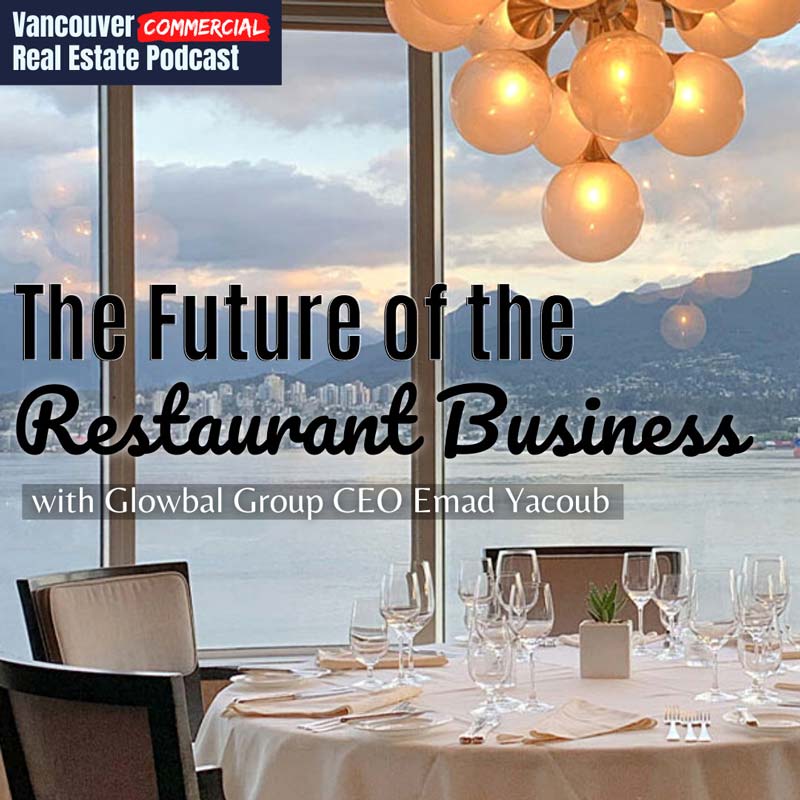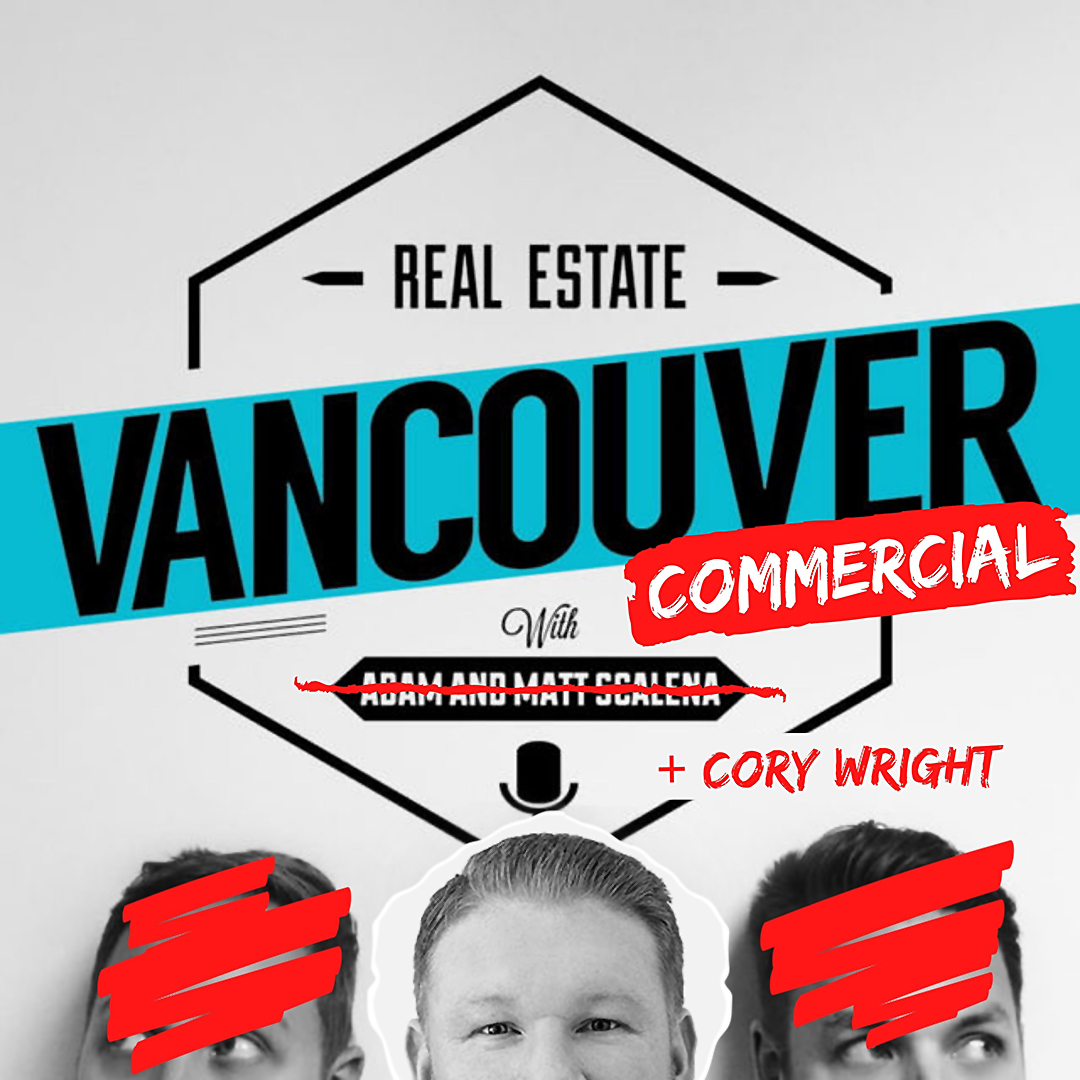
Powered by RedCircle
There is no question the hospitality sector has been hit the hardest by the COVID pandemic. One of Vancouver’s most prominent restaurant CEOs joins Cory this week to discuss the challenges the industry has had to overcome to survive and what the future of the business looks like.
The Glowbal Group operates 10 locations that are some of the premiere restaurants in the Greater Vancouver area. Their CEO Emad Yacoub discusses how they survived losing more than $110,000 per day, managed a payroll of over 900 employees when the COVID shutdown hit, and what the Glowbal Group has in store for the future. The former Restaurateur of the Year provides his insight of what is next for the industry and what challenges still lie ahead while shedding some light on when he expects sales to get back to pre-pandemic levels.
This is a must-listen episode, as the hospitality sector is one of the largest employers in the province and the lifeblood of the downtown Vancouver scene!
Please tell us about yourself and the Glowbal Group.
I was a young chef in Toronto in the 90’s. I came to Vancouver to be the Executive Chef at Joe Fortes and worked there for a couple of years. I then decided to go out on my own. I opened a coffee shop in Toronto and things went well, so I opened a second. Things developed quickly and my wife at the time wanted to come back to Vancouver to be closer to family. So we came back to Vancouver and started Glowbal Group. I opened my first restaurant here in 2002.
After that, the ball started rolling very quickly. We began opening our other restaurants around the city. We now have 10 locations with three more opening in the next year. We’re opening a restaurant across from the Convention Centre, a Black & Blue in Toronto and a Trattoria in Willowbrook Mall. It’s been a good phase of development for the company.
How has covid impacted the Glowbal Group?
It came in like a storm. People who aren’t in the restaurant business don’t know what happened to the industry. We got decimated. In one day, you have to shut down your business. We had 900 staff when covid hit. You need 3-4 weeks to shut down a company of that size. There was zero revenue. We were losing $110,000 per day for 40 days straight; we lost $4.4 million in that time. We had suppliers who needed to be paid too.
And that’s just me. Take this across the 50,000 restaurants in Canada, plus all the hotels. The pandemic decimated our industry. To survive, you had to have loans and borrow money; I had to use my RSP.
But once we adjusted and set up a plan to survive, it made our company a lot stronger. We learned how to be more efficient and get rid of a lot of waste. We shaved our head office expenses of $3 million a year in half.
I learned I don’t need a head office anymore; everyone is on a computer now. I’m shutting it down after our lease ends in six months. So that saves me $20,000 per month. But how many companies will make that decision? That’s the scary part. A big chunk of our business is the lunch crowd. If those people don’t come back to their offices, what happens to office real estate downtown?
We’ll have to see what it looks like when big companies come in, like Apple and Amazon. They can use their current office space more flexibly and keep hiring. That’s the saving grace. Most of the buildings coming up were already leased before the pandemic. But it’s the new buildings I’m worried about.
How did you juggle all of your financial commitments throughout the pandemic?
My biggest mistake I made is that I didn’t make a video of what I was going through during the pandemic. I had a huge table of cheques that needed to go out and we had no clue how we were going to make it. We told ourselves we just had to survive. We could always make money – we know how to make money – we just had to survive.
Once the government started assisting, that’s what kept the industry alive. I wouldn’t have made it without that. Instead of giving people unemployment, the government gave that money to businesses to keep people on payroll. They would have had to pay out that money anyway, so it was a win-win.
What have you learned from this experience? Where are things at now?
The problem now for me and everyone in Vancouver is lack of staffing. I have big functions being offered to me – events with 30,000 meals – but I can’t find staff. My night cleaner said she can’t find staff and is working seven days a week. We’re debating whether we should take me, the CEO, and put me in the kitchen once a week.
Our businesses are currently at 80% of their regular activity. The missing 20% is tourism and the lunch crowd. Lots of people are not back at the office. But people are going out at night and on the weekends; it’s packed. But the weekdays are more difficult.
Where does the industry go from here?
Costs are going to go up quite a bit. So prices will go up. There’s no choice. Staff are being paid more in order to keep them. All of our staff are getting a 20% wage increase and that has to come from somewhere.
What was the decision to go to Willowbrook Mall?
Our Trattoria is a concept that was made for neighbourhoods outside of downtown Vancouver. The big restaurants with big glamour are for downtown Vancouver, because that’s where people want to go for that. But when you just want a nice pasta and glass of wine in the neighbourhood, that’s when you go to Trattoria. We want to open another five of that concept in the Lower Mainland.
Why is there a migration of businesses from Vancouver to Toronto?
It’s about the volume of people. I’m a Torontonian. We’re putting Black+Blue in the TSX. It’s the centre stage of Toronto. That building alone has 20,000 people working in it. That same number of people would not even fill up the five biggest buildings in downtown Vancouver.
I was in Toronto for 15 years before I came to Vancouver. I want to go back home. I’ve wanted to open there for a long time but I wasn’t going to do it until we could get centre ice. Now we have centre ice and we can expand from there. If we do it right, that’s the growth for the company. The top restauranteurs from Toronto come to Vancouver and they look at our prices and our real estate. And they say that there’s no way they’ll be able to make money here. Real estate in Toronto is much cheaper and prices are much higher.
A steak in Black+Blue today is $69. In Toronto, it’d be $89 for the exact same steak. And they’re paying less rent than us.
What happens to the restaurant industry in Vancouver in the next five years?
We won’t know what will happen until the credit stops. The minute that stops, we’ll see what will happen. We could see staffing come back and small places that will snap.
Is there more emphasis on patios?
Yes. I just put up $195,000 for the patio renovation on Glowbal. I did that for Black+Blue and it was so popular, so we did it again. We’re now starting on the patio for Italian Kitchen.
Are there any parts of the city you’re avoiding for expansion?
Yaletown has always been great and it is busy. But the reason I left Yaletown is because there are now 60 restaurants there. When I first came in, there were only five restaurants. We were still busy, but we weren’t lined up anymore. The line is where you make the profit. Yaletown keeps getting bigger and the rent is going up, so we decided to go somewhere else.
Where do you want to open restaurants?
Our top spot was the Convention Centre, and that’s where we’re going. We’ll be opening a chophouse and it’s going to be a beautiful location.
Where is the Glowbal Group in 20 years?
My goal in the next five years is to double the company. We have a handshake deal with a hotel owner and had planned to do the deal in May 2020. But after the pandemic hit, everything went on hold. Once the pandemic passes, we’ll resume. It was a huge deal and expansion for our company. I can’t talk about it yet but hopefully it launches at the beginning of next year.
What is your advice to someone entering the restaurant business?
If you don’t love your job, that’s not the thing you want to do. If you want to be successful in any type of business, you have to love it. Don’t look at your watch while you’re at work. If you love your job, the hours will fly away and the business will do well. But you have to love it.
Find out more: glowbalgroup.com
For all the curious minds interested in commercial real estate investing, grab a coffee and pull up a chair because we have exclusive stories and tips from commercial real estate brokers, investors, developers, economists, urban planners, and everyone in-between. From the successes and failures to the motivations and lessons learned, the Vancouver Commercial Real Estate Podcast is your insight into commercial real estate in Vancouver, Victoria, Kelowna, and beyond.
What's the best real estate market to invest in? What are the commercial real estate asset classes and property types? Hosted by Cory Wright, founder of William Wright Commercial, and co-hosts Adam and Matt Scalena of the Vancouver Real Estate Podcast, our podcast opens the door to real estate investing for everyone from beginner investors to experienced real estate professionals. New episodes are released every Tuesday. Follow the Vancouver Commercial Real Estate Podcast on Apple Podcasts, Spotify, Google Podcasts, or your favourite streaming platforms.

This communication is not intended to cause or induce breach of an existing agency agreement. E&OE: All information contained herein is from sources deemed reliable, and have no reason to doubt its accuracy; however, no guarantee or responsibility is assumed thereof, and it shall not form any part of future contracts. Properties are submitted subject to errors and omissions and all information should be carefully verified. All measurements quoted herein are approximate.
ⓒ William Wright Commercial Real Estate Services 2024
Proudly designed by Burst Creative